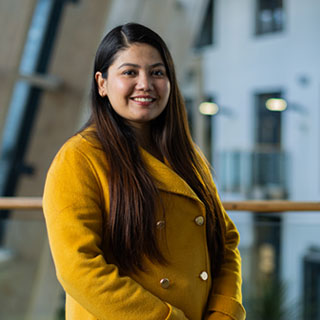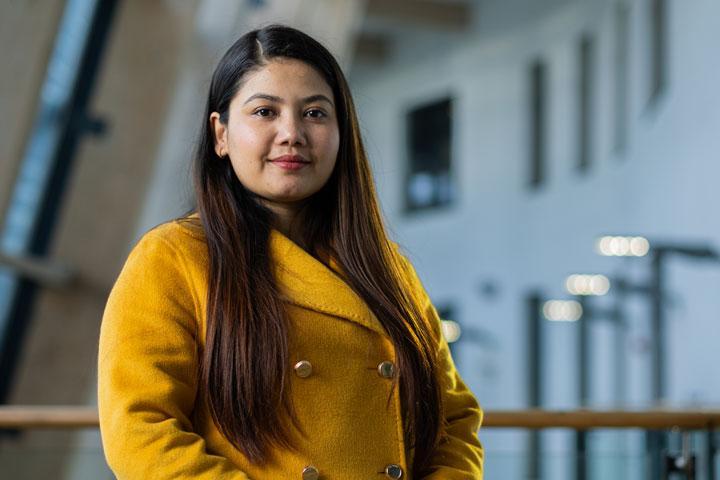
Asma
MSc Advanced Biomedical Engineering
Asma is from Nepal and did her Biomedical Engineering degree in Bangalore, India.
After her degree, she worked as a biomedical engineer in Nepal for four years, before deciding that she wanted to further her knowledge. She chose to do the MSc in Advanced Biomedical Engineering at Bradford, which she finished this year, receiving top marks and achieving a Distinction.
This is her story.
A smooth process
"I knew when I decided to do an MSc that I’d have to move abroad, as there were no suitable courses available in my home country of Nepal.
"I researched universities all over the world and decided to study in England, as the MSc standard course length is one year.
"After exploring several UK universities, I chose Bradford - the curriculum really appealed to me."
"I was nervous about coming to study in the UK as I thought it would be a bumpy transition, but everyone at Bradford was fantastic and it was a smooth process.
"Everyone made me feel at home right away. When you arrive, there are a number of programmes you can take part in where you get the opportunity to meet other international students."
The University’s International Student Support Team helped me settle in, and my programme leader was also very supportive and welcoming.
Intriguing topics
"When I was in 12th grade, my Dad had a heart attack and had to have a stent fitted, which helped his heart work well again. I spent hours researching what a stent was, and that research opened up the world of biomedical engineering for me. It really interested me and I was good at physics and maths too, so it seemed like the perfect career choice for me.
"When I was doing my degree, there were a lot of topics which really intrigued me, like medical imaging, biomaterials and artificial organs. I wanted to learn more about these things and after working in the field for a few years, I decided it was time to expand my knowledge and do an MSc."

The course is really practical and market-orientated. I got the opportunity to work on my own research and develop my project management skills, which will be invaluable in my career going forward.
My career ambitions
"You do seven modules on the course, five core and two optional.
"My favourite was Regenerative Medicine, which involved learning about tissue engineering that's used for organ repair and replacement. One of my career aspirations is to create a new type of medical implant so it fits all my interests.
"I also enjoyed the MSc Project module, which included my dissertation and research project. I got to work on implant design and even got the opportunity to design an implant and print it on a 3D printer."
"There are a lot of different speciality labs to practice in, which allows you to hone your skills in different areas. There’s also a brilliantly stocked library with an amazing selection of books, clusters of computers you can use and fantastic study areas.
"Completing the course has given me the theoretical knowledge and research skills I need to achieve my career ambitions. I’d like to go into the research and development side of implant design and am waiting for the right opportunity.
"I will also be applying for a Graduate Visa so I can gain international experience, which I can then take back to Nepal to help there."
Work hard, but don’t forget to enjoy your journey too. You’re here to learn and grow as a person, so keep exploring and evolving. Be kind to your lecturers, your friends, and most importantly, yourself.
